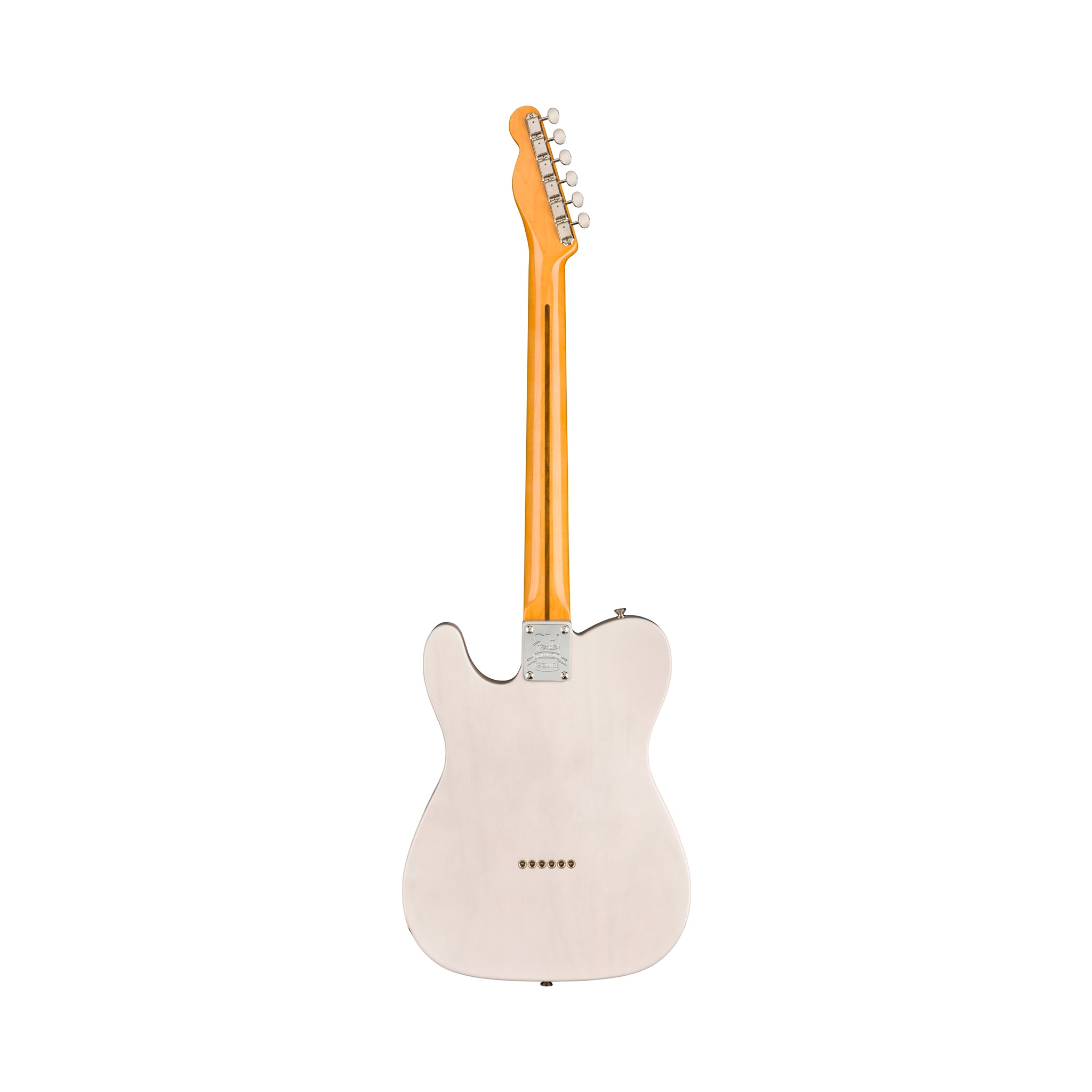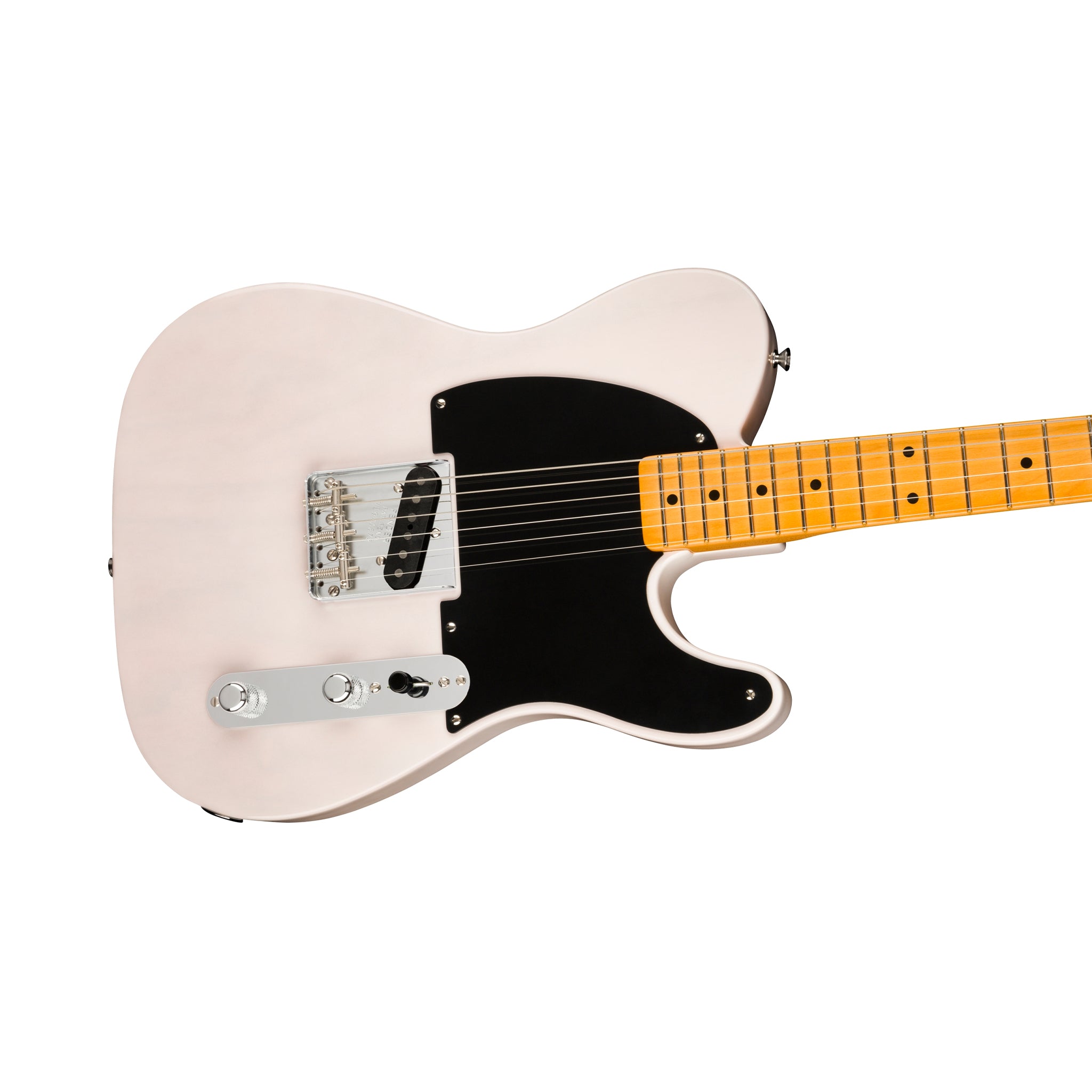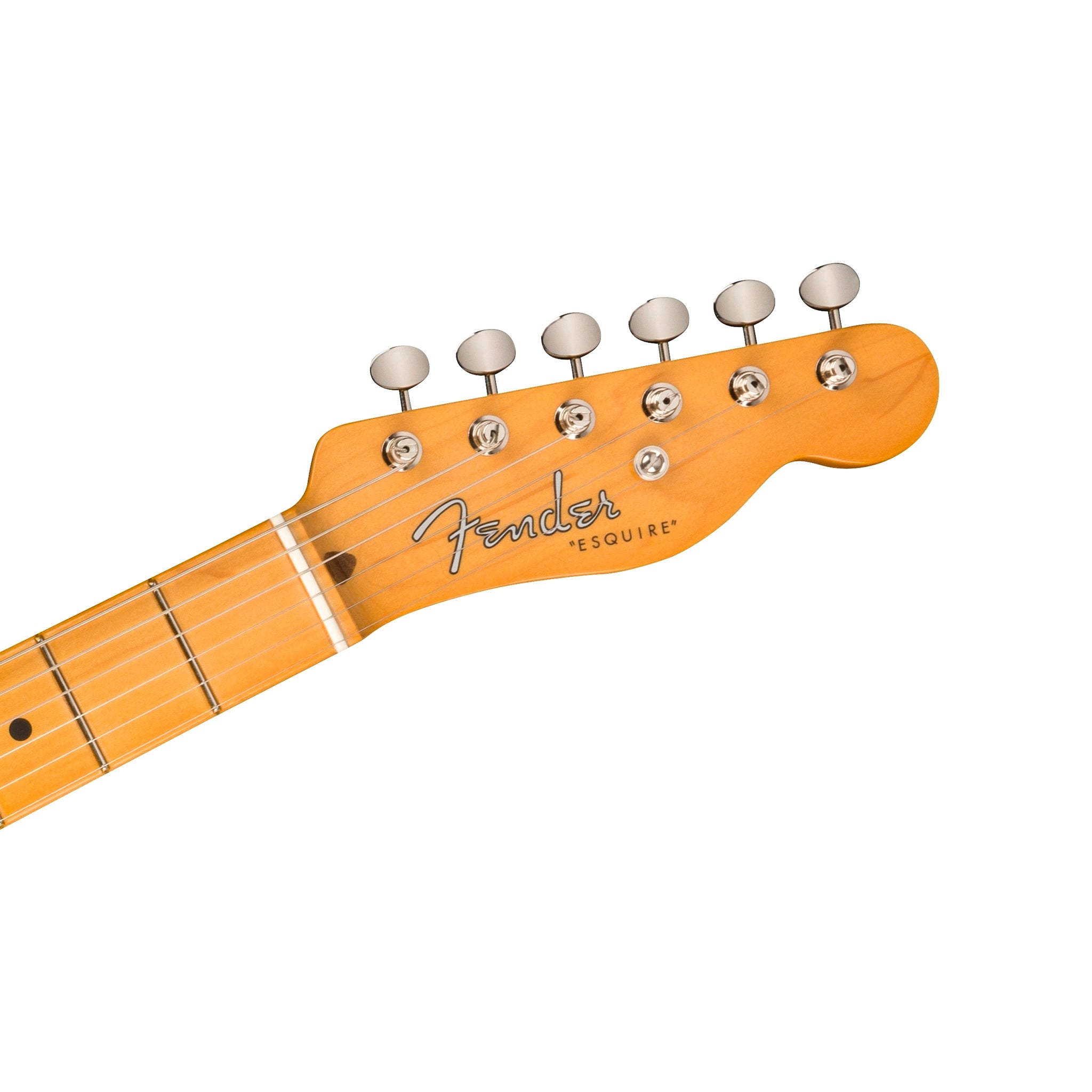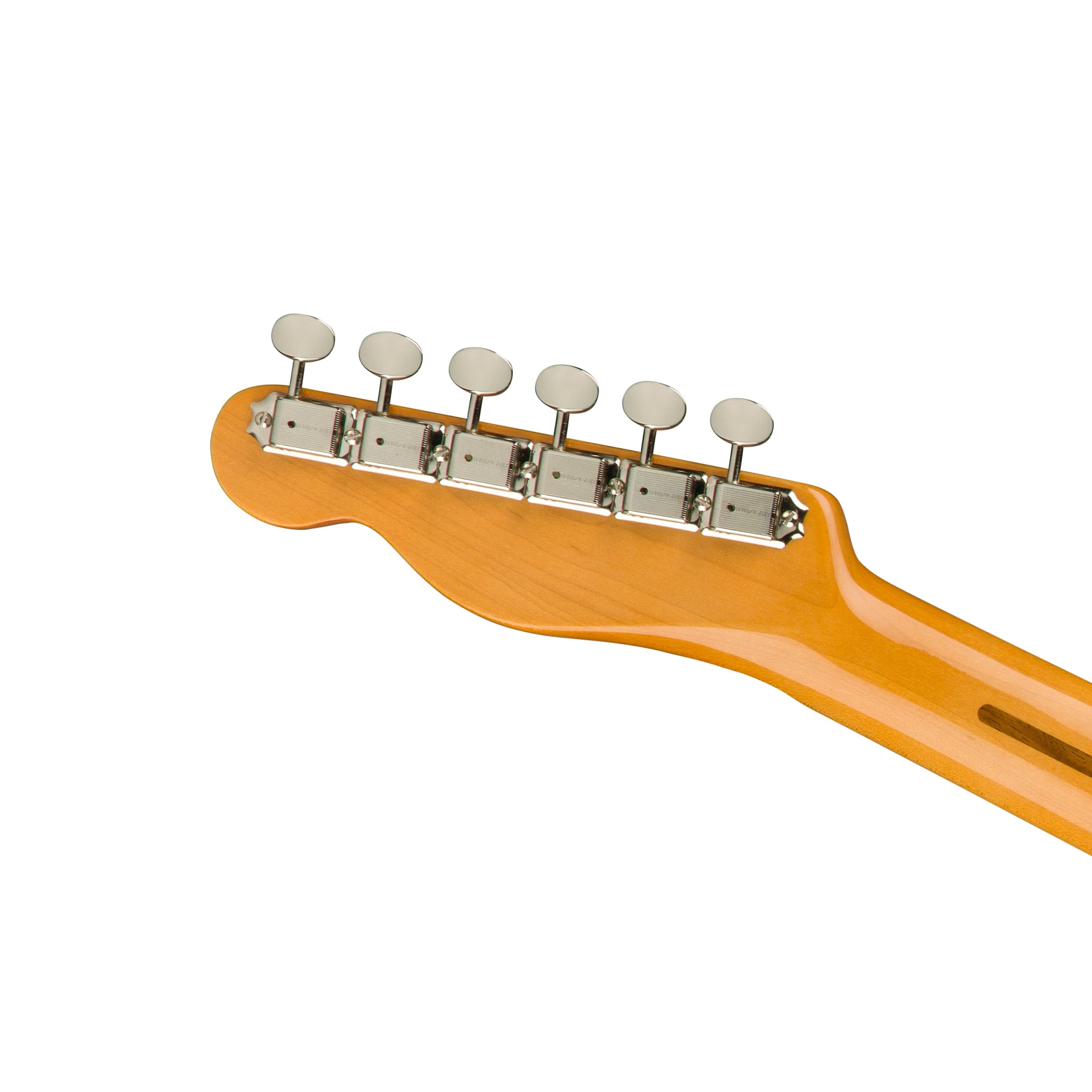The Esquire was Fender's first solid - body electric guitar, introduced in 1950. It has an elegant single - cutaway design, an adjustable 3 - saddle bridge, and a single lap - steel pickup at the bridge. This guitar set the standard for all solid - body electric guitars and hinted at the success of its well - known sibling, the Telecaster. The 70th Anniversary Esquire features a roasted pine body. Pine is a lightweight wood that gives a punchy and complex tone, and the roasting treatment significantly enhances the body's resonance. It also comes with a lacquer finish, a thick 'U' - shaped neck, a Tim Shaw - designed Esquire bridge pickup inspired by an original '50 Esquire from the Songbirds Museum in Chattanooga, TN, a special anniversary neck plate, and a tweed case. Production of this anniversary model is limited to 2020 only. Key features include a roasted pine body, a one - piece maple neck with a 7.25” radius fingerboard and 21 vintage - tall frets, a Tim Shaw Designed Esquire bridge pickup, an Esquire Tone Circuit, and a custom neck - plate. Specifications: Body Shape is Telecaster®, Body Material is Roasted Pine with a Gloss Nitrocellulose finish, Neck Profile is ’50 Broadcaster “U”, Fretboard Material is Maple with a 7.25” (184.1 mm) radius, Scale Length is 25.5” (648 mm), there are 21 Vintage Tall Frets with Black Dot inlays, Pickup is the Tim Shaw Designed Esquire Bridge Pickup, Bridge is a 3 - Saddle American Vintage Strings - Through - Body Tele® with Solid Barrel Steel Saddles, Pickguard is 1 - Ply Black Phenolic, Strings are Fender® USA 250R Nickel Plated Steel (.010 -.046 Gauges, PN 0730250406), Tuning Machines are Vintage - Style, and Hardware Finish is Nickel/Chrome.




Using your Fender 70th Anniversary Esquire Electric Guitar is easy. First, tune your guitar using the vintage - style tuning machines. You can use the Esquire Tone Circuit to adjust the sound to your liking. When you're playing, the adjustable 3 - saddle bridge allows you to fine - tune the intonation. As for maintenance, keep your guitar in the tweed case when not in use to protect it from dust and scratches. Wipe the guitar with a soft cloth after each use to keep the lacquer finish looking good. The roasted pine body is durable, but avoid exposing it to extreme temperatures and humidity. Check the strings regularly and replace them when they start to sound dull or show signs of wear. The fretboard can be cleaned with a proper fretboard cleaner to keep it in good condition. With proper care, your guitar will serve you well for years.